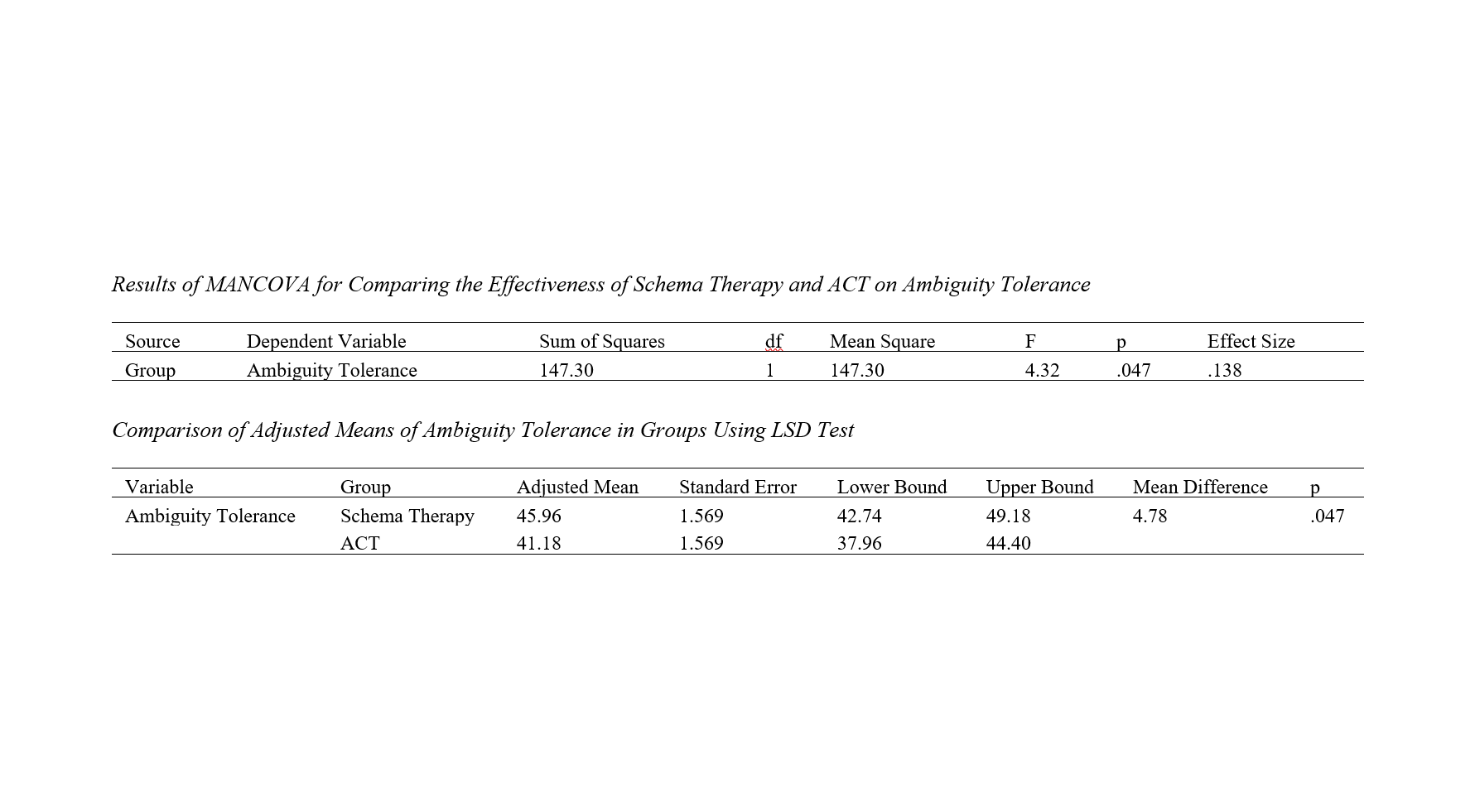Comparison of the Effectiveness of Schema Therapy and Acceptance and Commitment Therapy on Ambiguity Tolerance in Male High School Students
Keywords:
Schema Therapy, Acceptance and Commitment Therapy, AdolescentsAbstract
Objective: Adolescence can profoundly and significantly impact one's entire life. This study aimed to compare the effectiveness of schema therapy and acceptance and commitment therapy (ACT) on ambiguity tolerance.
Methods and Materials: This research is a semi-experimental study with a pre-test-post-test design and a control group. The statistical population included all male high school students in the second year of Bostanabad County in the 2021-2022 academic year. A total of 45 participants were selected through purposive sampling and randomly assigned to two experimental groups and one control group. The research instrument was the second version of the Multiple Stimulus Types Ambiguity Tolerance Scale (MSTAT-II) by McLain (1993). The research hypothesis was analyzed using multivariate analysis of covariance (MANCOVA).
Findings: The results of the covariance analysis test showed that the significance level in all comparisons was less than 0.05, indicating a significant difference in the effectiveness of schema therapy and ACT on ambiguity tolerance (p < 0.05). The effect size analysis showed a difference with a coefficient of 0.138.
Conclusion: According to the results of this study, schema therapy has a greater impact on ambiguity tolerance than ACT. Therefore, it is suggested that schema therapy be taught to school counselors as an effective strategy so that they can apply these strategies in their interventions.
Downloads

Downloads
Additional Files
Published
Issue
Section
License

This work is licensed under a Creative Commons Attribution-NonCommercial 4.0 International License.








